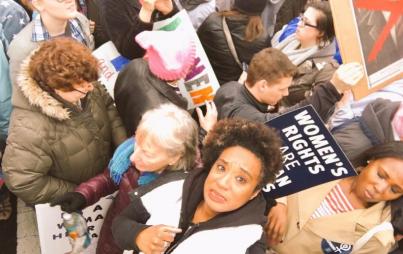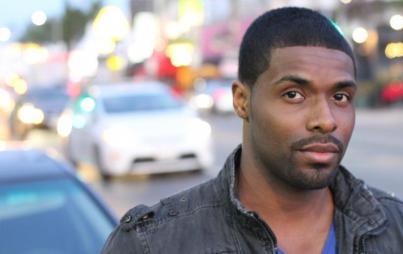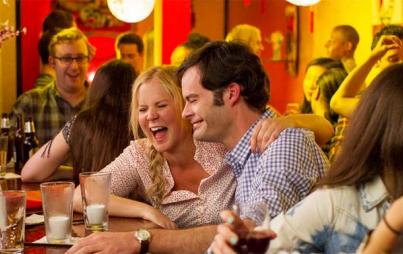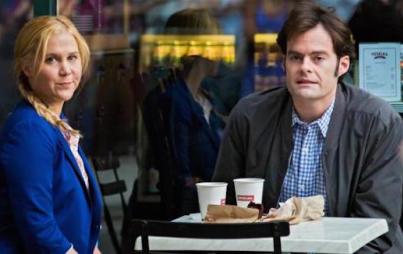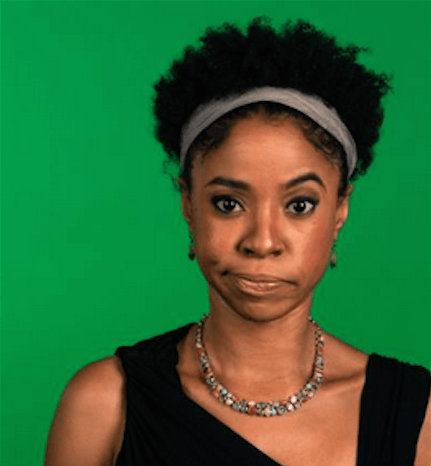
“I didn’t get the African name because, you know, African names have great meaning,” Marina Franklin laments in one of her now-classic comedy bits. “My sister got the African name. Her name’s Nailah. It means, ‘one who succeeds.’ My name’s Marina. It’s a place where you dock boats.”
That might be true, but one (meaning, me) might argue that, despite a maybe-demure boat-docking name, Franklin is decidedly succeeding in her own right. A regular fixture on the comedy circuit in New York (in fact I first met Franklin at her regular haunt, The Comedy Cellar, while working as a waitress there), she has since become a soon-to-be household name. She's held court on Chappelle’s Show and Tough Crowd with Colin Quinn, in addition to manning her regular correspondent gig on the Jay Leno Show as well launching her Showtime special Women Who Kill with Amy Schumer, Nikki Glaser, and Rachel Feinstein in 2013.
Basically? You'd be hard-pressed not to have seen her (or basked in her raw humor) somewhere.
A native of Chicago, Franklin, who received a master’s in theater from Syracuse, first moved to New York City because she and her boyfriend at the time broke up (“Thank God for that,” she says). A roommate convinced her that her stories were funny enough to share with an audience, so she thought she’d give stand-up a shot. The rest, as they say, is history. Or not, because I’m pretty sure this is only the beginning for Franklin.
Ravishly caught up with her to discuss what it’s like to be a female comedian in a male-dominated profession, the importance of female friendships in the industry, and her podcast, FriendsLikeUs.
How did you first get into comedy?
I took a class at Gotham Comedy Club, which, I learned, was frowned upon. All the comics at open mikes teased me, "You took a class!" They (specifically Victor Varnado) bullied me out of it and I started working on material at open mics.
What is it about comedy that makes you think, This is where I belong?
This is a deep question and a good one. Mostly because you struggle with that question most of the time. And early on, without validation, you're not sure. For me, when "life" happens—tragedy, a death in the family—and you’re like, “I can still be funny and make people laugh,” that was when I knew this is where I belong. It makes me happy.
A lot of comedians are said to have found humor through their pain. That they're actually dark, depressed, sometimes repressed, people. I never got that impression from you; I got the opposite, actually (correct me if I'm wrong!). So, where does your comedy come from?
I really appreciate that you do not think that of me. Actually, my comedy does come from difficult times, but it is more a cathartic moment for me. And it heals me in a way. Talking about bad dates, or relationships, help. Early on in my experience as a comedian I talked about being bullied because I was not "black enough.” That was a painful journey, but humor was my survival from it. Which is another reason why I felt I was meant do this. No boyfriend is safe from my routine. It's what I do and it feels good to see that people can relate to it.
What inspires your comedy? Does the joke come first, or does it evolve?
It comes from moments or things that happen in my life that I have strong views on and that can be eventually funny. It does evolve. My best jokes are not immediately funny; the good stuff evolves.
Your comedy has been described as self-investigating and honest. Are those elements important to you as a comedian?
Yes. I feel like my honesty connects in a funnier way and is a better joke. I do embellish a little. It is therapeutic on some level being self-investigating. This question itself was very self-investigating. Being honest means more of a connection for my audience. I get that from women all the time. “I like your material because it's honest.” That vulnerability on stage, not everyone can do that. It takes years to capture that type of honesty, which comes from my acting background most likely.

What do you want your comedy to be reflective of? When people leave a Marina Franklin show, what you want them to think/feel/talk about over the water cooler?
I like it when they "get" it. So they come from the show and they have a clear understanding of what it means to be me, as a black woman, and how we're not all one "type." Also, if I hear them repeating a joke or sound I make—that is the climax. Some of the wait staff at the Comedy Cellar, from what I hear, still repeat an old joke of mine where I go: "Shake A Dang Dang!" and "I got a big Pussy!!" [By doing that] they are spreading the story around in a sense. The joke being that not all black women in comedy are this "type" of routine. And the best result is that more black female comics are being authentic because of it.
What is your favorite part about comedy?
I perform all the time and it's very creative. No matter what, there is always somewhere to "get up." I love to perform and I hate waiting for opportunities. Comedy, standup comedy, is its own self-creative playground.
There's been a lot of talk about how difficult it is to be a woman in comedy. What has your experience with that been?
I never really think about it these days because I'm working. I think early on, when you're starting out, it can be tough. Some male comics are not so willing to give you stage time. Some of the guys doing comedy, part of the reason they do it is because they have issues. And that comes out in their ability to let a woman talk on stage "freely," and God help them if she's funnier. I sort of had an experience tonight where I could see some of the younger male comics who were not too sure of themselves and projecting onto me their insecurities. Thank God I'm older and in the business, so I can look at it for what it is and move on.
Do you ever think there will come a time when being a woman in comedy and/or a woman who's funny, will no longer be an issue?
It's already happening with women in standup specifically who are doing well, like Amy Schumer and Chelsea Peretti. These are young women making strides in the game. Now, we just have to make some more waves for "black women" in comedy. I see a lot of young ones who are coming up, and they are killing this game of comedy.
Women Who Kill was a comedy special in which you performed alongside fellow comedians, and friends, Amy Schumer, Rachel Feinstein, and Nikki Glaser. How important is it to have female friendships in the comedy industry?
It's huge. I think there is a common place in which we can have fun and relate within the business that we're in, and Women Who Kill was a wonderful example of women who can be great at something together without fighting over who is the funniest. We are all women who kill. And that's why it works.
Now, if Amy could just return my phone calls (kidding) . . .
What was the impetus behind launching your podcast, Friends Like Us? Can you tell us a little bit about it?
I started FriendsLikeUs because there is still a need for funny women of color. After SNL and the search for a funny black female, I realized that we were not on the radar. This big push to see more funny women was not happening for us as much, but this is changing too. So I try to showcase as many women of color on my podcast as possible. The biggest compliment was from a white psychotherapist who listens to the show and feels she is getting to know more funny women of color and see where they are performing. It's also an insight into how other women of color talk when they are "free" to discuss hot topics openly.
Any memorable moments for you from the show?
The most memorable is when we recently had Artie Lange on . . . wow! Did this make people upset! They were so connected to the idea of women of color only! However, Artie had just insulted two black women and this was relevant to our show. I wanted to have an honest dialogue about what happened and reveal who Artie was to an audience that may not know him or understand the art of working on jokes that aren't so nice, and why he did what he did. And also to discuss how being a comic in a very PC world has made it difficult for us to be creative. It is the most downloaded episode.
Is there anyone who hasn't been featured that you'd love to have on?
I would love to have Gayle King. We also have non-comic women and it actually helps make the conversation more human-like. It can't all be jokes. But, yeah, since I doubt we can get Oprah, I would love to have Gayle. I’m also waiting on Leslie Jones, the new cast member killing it on SNL and the new cast member of the latest Ghostbusters. Her story has relevance for our show in that she is an older black female comic who turned a “maybe” into a “yes” and has been killing it ever since. I’m very proud of her accomplishment and interested in her story. She has said she would love to come on. So stay tuned . . .
I read an article with you commenting on Maya Rudolph and how she inspires you as an African-American comedian. What is it about Maya that inspires you? What other women inspire you?
I think she shattered and smashed this notion that we have to play one "type" of character. She plays roles where being black is not the issue, but the story, and that is refreshing to see. Obviously Wanda Sykes, she is really my favorite. This woman was so different to watch. Her comedy was well-written and brilliant, and it was not stuck in this "type" of a black female comedy routine. Also, Janeane Garofalo, her voice was unique to me. She had something to say, and I was definitely inspired and connected to it.
What's most important to you: being a good comedian, or being a good, female, African-American comedian?
The most important is being funny. That's it. End of story. And if it inspires other young African American female comedians to reach their authentic voice to the funniest level, that is a winner.
What other projects do you have going on/coming up?
I'm in Amy Schumer's movie, Trainwreck. I'm doing more podcasting with FriendsLikeUs, which just received an amazing review on the AV Club, and you can see me regularly at the Comedy Cellar, working on the new material.
What do you do when you're not working?
I love my cat Billie. Working out is key. Boxing is a great workout when I can make it. Plus, I like to know I can take someone if I have to.
Check out more at marinafranklin.com and follow her on Twitter!

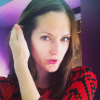
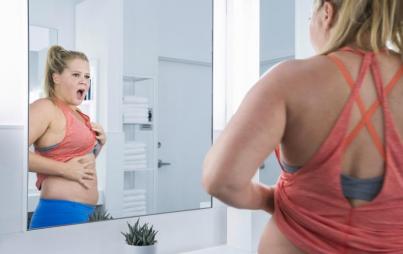
![By Anna Hanks (@annaustin) [CC BY 2.0 (http://creativecommons.org/licenses/by/2.0)], via Wikimedia Commons By Anna Hanks (@annaustin) [CC BY 2.0 (http://creativecommons.org/licenses/by/2.0)], via Wikimedia Commons](/sites/default/files/styles/profile/public/images/article/2019-05/Shopping%2520Abroad%2520Is%2520Tough%2520When%2520You%2527re%2520Black%2520And%2520Plus-Size%2520%25281%2529.png?itok=M_TteIYh)
